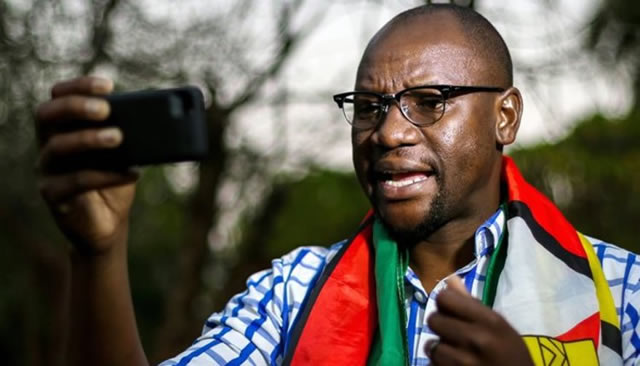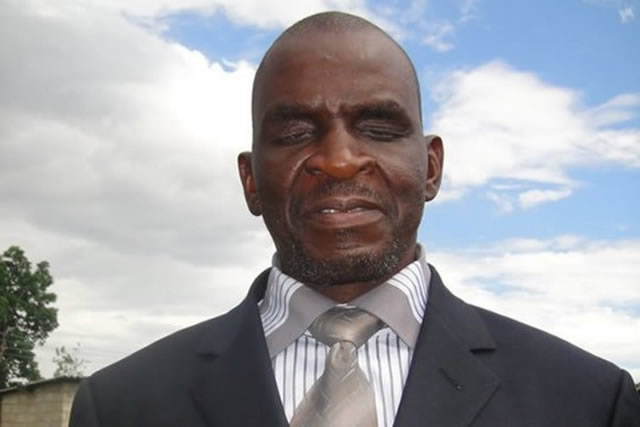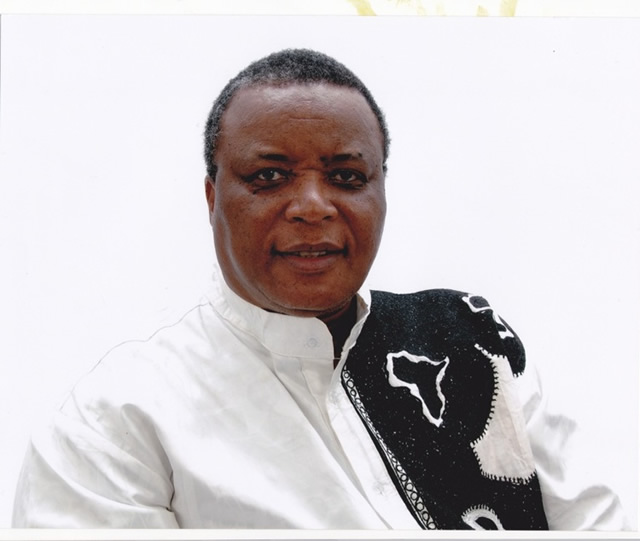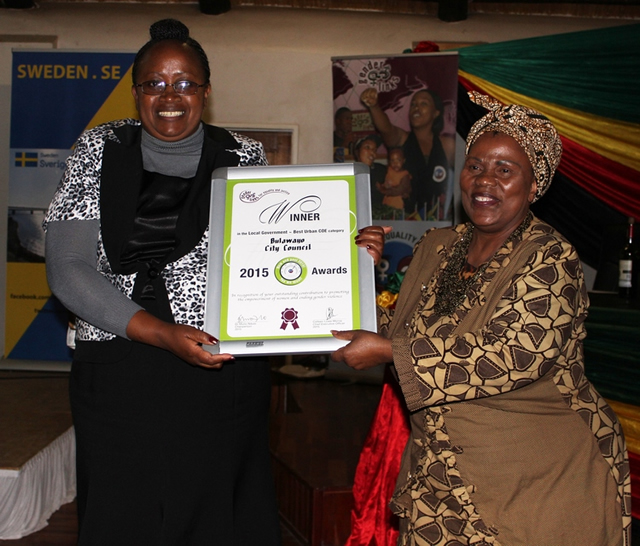Prophets, meddlers and kingmakers in Zim

Lawson Madzivanyika : Features Correspondent
“Democracy is the worst form of Government except for all those other forms that have been tried from time to time” These words, attributed to Britain’s war-time premier Winston Churchill, must have equally ruled out theocracy as a governance system. For Churchill, a historian of antiquity in peace-time, must have surely known atrocities traceable to theocracy, from the Holy Roman Empire to the Ottoman Empire, not least atrocities meted out against foreigners bythe Nazi-Fascist Axis with the blessing and signature of Pope Pius XI.
Democracy is, in its more familiar provision, a system of Government whereby an optimally representative cross-section of citizens chooses national and local leaders. It is the people, not the clergymen, elites or pressure groups, who install national leaders.
And the generally accepted method is elections not acclamation.
This is the case for Zimbabwe, a secular democracy, where the installation of leaders is a popular, rather than mystical prerogative.
But if the constitutionally determined separation of church and
state comes across as obvious, then some Christian leaders are yet to parse it for a modest estimation of how much political space they can legitimately claim.
In recent weeks, church leaders have been increasingly scaling up political podiums, issuing propositions of far-reaching consequences. Pastor Evan Mawarire has emerged as the face of social media-driven anti-Government campaign tagged #thisflag, while several other pastors have also taken up activist mantles.
But, perhaps, no clergyman is yet to overreach himself in the fashion of clerical-cum-activist outfit Zimbabwe Divine Destiny’s executive director, Bishop Ancelimo Magaya.
Presumably representing every Zimbabwean, Magaya has repeatedly called on the country’s democratically installed leader, President Robert Mugabe, to step down, threatening that churches may force him out.
“This is the right time for action. There is no better time than this. I am saying President Mugabe should step down and Zimbabweans should mount pressure to make sure that the president steps down. But the pressure must be violence-free,” Magaya told journalists this week.
“I believe strongly that there is an emergence of a prophetic force that is going to be unstoppable. The church is ready to confront Mugabe, but when I say confront I am not talking about violence . . .
“Yes, we do recognise diplomatic engagements which are very important. But I also believe that confrontation cannot be ruled out as long as it is not violent. We need to use all methods to make sure that this machinery is dismantled,” he said.
A local daily has lauded this as “a major departure from the mild positions that faith-based organisations usually take with regard to politics”.
Curiously, the newspaper attempted to furnish a sort of mystical quorum for Magaya’s statement by attributing it to “churches under the ambit of the Zimbabwe Divine Destiny” although ZDD is not so much a significant ecumenical platform as it is a shelf non-governmental organisation.
This is the second time Magaya has made such calls in the space of three weeks. Earlier, he claimed that there was “clear indication and consensus” that President Mugabe had failed and is “too old to continue.”
“He has failed and we have made observations that whatever difficulties we are going through right now, it is actually a result of the leadership crisis where a leader has failed to provide servant leadership,” Magaya said, promising to mobilise action to force President Mugabe out.
Another local daily hailed the statement as a democratic milestone and canvassed endorsements from opposition functionaries, MDC-T’s Obert Gutu, ZPF’s Rugare Gumbo and MDC’s Kurauone Chihwayi, who all gave some “theological” justifications for the bishop’s statement.
But fellow clergymen have not been as liberal.
Family of God founder Bishop Andrew Wutawunashe took a “Vox Populi, Vox Dei” position, whereby the church acknowledges and works within democratic processes of the state, in a recent interview with this publication.
For Wutawunashe, it is not for the church to appoint and depose leaders, but to execute its spiritual mandate in the democratically determined political setting of the day.
“It actually baffles me as to why the answer and the solution in the view of certain church leaders to the problems now should be a stepping down of the President. It makes no sense,” Wutawunashe said.
“But, on the other hand, what I really feel we should be looking at as church leaders, we need to really redirect ourselves to look more carefully at the Word of God and what the role of the Church is in a nation as sanctioned by God.
“The sanction of the Church comes from the Word of God; it does not come from populism or anything else. It must concur with the requirements of scripture and the direction of the scripture. The Church clearly does not have a mandate from God either to appoint or to depose the leader of a nation.
“The role of the church, according to the Word of God, makes it very clear that it is God who appoints leaders, it is God who lifts up one and puts down another.
“So the role of the Church as put very clearly in the scriptures should be, first of all when God has appointed leadership, to affirm that leadership,” he
said.
What Bishop Magaya is essentially saying is that the church can discount the will of the majority of Zimbabweans expressed in the elections by “forcing out” the Government.
Pastors’ espousal of majority concerns and national interest is not a given. Historically rogue clergy, including Catholicism in pre-revolution France and Orthodoxy in pre-revolution Russia, has been known to saddle heavy burdens on the common people while maintaining complicity with economic injustice.
There can be no guarantee, except that which is democratically determined, that the clergy, or any sector, is the embodiment of popular interests.
Clergymen who “dye their indigo darker than the bereaved,” to quote Wole Soyinka, may well be singing for a foreign-sponsored supper.
Elections, not acclamation, are the only means to determine what the will of the majority is.
Rehoboth School of Ministry administrator Dr Charles Jusa told The Herald Review that the clerical clamour for revolution is a deplorable mix-up of roles.
“The Bible gives us two truth truths regarding our stance towards politics and governance. The influence of Christianity can be allied with Government policy and the church must work hand in hand with the legitimate Government,” Dr Jusa said.
“Being salt and light does not offer Christians the mandate to seize political power. It is, rather an evangelistic challenge.
“Paul teaches that every person must be subject to governing authorities because there is no authority except that which is instituted by God. We must stay positive and pray for our country,” he said.
While Zimbabwe maintains Thomas Jefferson’s middle wall between church and state, the two bodies share a sustained development partnership. A conservative coterie of the clergy says that this is the kind of interaction that must be maintained.
The prophetic mandate of the church as the nation’s voice of conscience cannot be ruled out but this must stay within constitutional confines.
In the Ancient Near East, Jewish and Israelite leaders were appointed by prophets. Prophets maintained a system of checks and balances on the political class in the interest of the people.
It is important to note that such a role did not consist in the clergy and the prophetic guild pursuing its narrow interests but was informed by the values of patriotism and economic justice.
Prophets like Elijah, Nathan and Amos did not take on the political class for the sake of their bread and butter or for showmanship but championed the wretched of the earth such as Naboth and Uriah against excesses of the rulers.
In Africa, spirit mediums played a pivotal role in the appointment of leaders in the pre-colonial era, with clairvoyants like Chaminuka, Nehanda and Kaguvi rallying the nationalistic spirit.
“Spirit mediums during pre-colonial era were influential in appointing leaders to the extent that they have been termed the ballot paper of the times as no King would rule without counsel from them,” University of Zimbabwe Old Testament scholar Dr Obvious Vengai told Herald Review.
Colonisation, by and large, overthrew the pro-poor mandate of the church, with the missionaries acting in complicity with the interests of foreign oppressors. Christianity has not entirely recovered from this mistake of history.
“It is indisputable that the missionaries were serving the political interests of Britain. The birth of Southern Rhodesia Missionary Conference was a powerful lobbying group which discussed issues with a bearing on locals’ way of life. The recommendations prescribed would then be endorsed by the state,” said doctor Vengai.
Dr Munetsi Ruzivo, a church historian at the UZ added that the government, pointed out that there was a major mid-century shift, with the church incorporating elements of liberation theology.
“The majority of churches during the colonial period cooperated fully with the Rhodesian administration until the 1950’s when some started critiquing atrocities committed by the Government of the day,” he said.
The establishment of independent African churches intensified Christian criticism against the Rhodesian administration.
The formation of the Johanne Masowe and Johanne Marange churches around 1932 was a direct revolt against cultural imperialism. However, they did not have any systems that could sustain a challenge to the status quo.
“In as much as the Independent African Churches were pro-African democracy, the absence of a coordinated system was a major drawback.
“Followers had to rely on the charisma of their leader as opposed to say for example Catholics who had the Catholic Commission for Justice and Peace,” said Ruzivo.
Post-independent Zimbabwe saw the growth of many home-grown churches with colonial churches still trying to influence political decisions in the country.
The Anglican and Catholic Church, both denominations tied to the interests of global elites, have tried to discredit the ruling government ever since it embarked on the land reform.
Dr Vengai said the Anglican church still has interests in Zimbabwean politics, hence the furore over Norbert Kunonga, a black empowerment firebrand.
“He was only known by the older folk as a very controversial priest who championed issues of black empowerment. Most clergy expressed their support of Kunonga for his ability to challenge white supremacy which had been a cancer in the diocese,” Ruzivo said.
When the government embarked on the land programme, the church expected the new bishop to issue a statement condemning the exercise but he did the opposite.
“I believe by condoning the land reform, he actually made new enemies since it was sons and daughters from England who were losing farms,” said Dr Vengai.
The World Council of Churches also condemned the Zimbabwe Council of Churches for not mobilising opposition to the land reform as done by then Catholic archbishop Pius Ncube.
“Church leaders who have directly or indirectly supported the Government’s approach to land and other national issues in recent years are understood to have done so because they ideologically share government sentiments on resource redistribution policies, indigenisation, sovereignty and African pride which were eroded by colonialism,” said Dr Ruzivo.
Pentecostal church leaders such as Rev Wutawunashe, Bishop Norbert Kunonga of the Anglican Church, Archbishop Paul Mwazha of the African Apostles, Manhanga and Obadiah Msindo of the Destiny of Africa Network have all played a pivotal role in explaining government policy which is beneficial to the masses.
Feedback: [email protected]









Comments